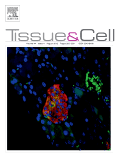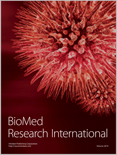
IN VIVO
Scope & Guideline
Unveiling the complexities of life sciences for a healthier tomorrow.
Introduction
Aims and Scopes
- Translational Medicine:
Research that connects laboratory findings with clinical applications, aiming to enhance patient care and treatment outcomes. - Oncology and Cancer Research:
A significant focus on various aspects of cancer research, including novel treatment modalities, prognostic factors, and molecular mechanisms underlying tumorigenesis. - Pharmacology and Drug Development:
Studies exploring drug efficacy, mechanisms of action, and the impact of pharmacogenomics on treatment responses. - Regenerative Medicine and Tissue Engineering:
Research involving stem cells, tissue scaffolds, and regenerative therapies to repair or replace damaged tissues. - Immunology and Inflammatory Diseases:
Investigations into immune responses, inflammation processes, and their implications in various diseases, particularly cancer and autoimmune conditions. - Surgical Techniques and Outcomes:
Evaluation of surgical interventions, including innovative surgical techniques, their effectiveness, and patient outcomes. - Biomarkers and Diagnostic Tools:
Research aimed at identifying novel biomarkers for disease diagnosis, prognosis, and monitoring therapeutic responses.
Trending and Emerging
- Precision Medicine and Personalized Therapies:
Research focused on tailoring treatments to individual patient characteristics, including genetic profiling and targeted therapies, is gaining momentum. - Immunotherapy and Cancer Vaccines:
An increase in studies exploring the efficacy and mechanisms of immunotherapy and novel cancer vaccines, reflecting the growing importance of these approaches in oncology. - Regenerative Medicine Innovations:
Emerging techniques in regenerative medicine, including the application of stem cells and biomaterials for tissue repair, are becoming more prevalent. - Artificial Intelligence in Medical Research:
The integration of artificial intelligence and machine learning in analyzing research data, predicting outcomes, and improving diagnostic accuracy is on the rise. - Longitudinal Studies on Treatment Outcomes:
A trend towards conducting long-term studies that assess the outcomes of various treatment modalities in cancer and other chronic diseases. - Microbiome Research:
Increasing interest in the role of the microbiome in health, disease progression, and treatment efficacy, particularly in cancer therapy.
Declining or Waning
- Basic Science Research:
There seems to be a decline in purely basic science studies that do not translate into clinical applications, as the journal increasingly prioritizes research with direct clinical relevance. - Animal Models of Non-Oncological Diseases:
Research focusing on animal models for diseases other than cancer appears less frequent, possibly due to a greater emphasis on cancer-related studies and translational impacts. - Epidemiological Studies:
Epidemiological research that does not directly tie into clinical interventions or outcomes has seen reduced representation, suggesting a shift towards more intervention-focused studies. - Traditional Diagnostic Methods:
There is a noticeable decrease in studies focusing on conventional diagnostic methods, as the journal shifts towards innovative techniques and biomarkers.
Similar Journals

Biochemistry Moscow-Supplement Series B-Biomedical Chemistry
Illuminating the Path of Innovation in Biochemistry and Molecular Medicine.Biochemistry Moscow-Supplement Series B-Biomedical Chemistry, published by MAIK NAUKA-INTERPERIODICA, is a pivotal journal in the fields of biochemistry, clinical biochemistry, and molecular medicine. Established in 2008, the journal serves as a vital platform for researchers and professionals seeking to disseminate and access groundbreaking research in the biomedical sciences. With an ISSN of 1990-7508 and an E-ISSN of 1990-7516, the journal has been recognized in the Q4 quartile across various categories as of 2023, highlighting its emerging presence in the academic community despite a competitive landscape. Although currently not available as Open Access, the journal encompasses a broad spectrum of studies, ranging from theoretical analysis to practical applications in biomedical research. The journal's dedicated focus on advancing our understanding of biochemical principles positions it as an essential resource for students and professionals alike, enhancing its significance in the global scientific dialogue.

Biomedicines
Advancing biomedical knowledge for a healthier future.Biomedicines, published by MDPI, is a prestigious open-access journal dedicated to the rapidly evolving fields of biochemistry, genetics, and molecular biology, as well as broader aspects of medicine. Since its inception in 2013, Biomedicines has established itself as a leading platform for researchers, practitioners, and students to disseminate high-quality research and innovative findings, reflected in its impressive Q1 ranking in both the Biochemistry, Genetics and Molecular Biology and Medicine categories. With its commitment to accessibility and impactful scholarship, the journal has quickly garnered an international readership, positioning itself as a vital resource in advancing scientific knowledge and fostering collaboration in the biomedical community. Operating from its headquarters in Basel, Switzerland, Biomedicines continues to thrive with features such as rigorous peer review and a fast publication process, making it an essential journal for those looking to contribute to and stay updated in their respective fields.

International Journal of Molecular and Cellular Medicine
Advancing the Frontiers of Molecular and Cellular ScienceInternational Journal of Molecular and Cellular Medicine, published by the CELLULAR & MOLECULAR BIOLOGY RESEARCH CENTER in Iran, is a leading platform dedicated to advancing research in various domains of molecular and cellular sciences. With an ISSN of 2251-9637 and E-ISSN 2251-9645, this journal features a rigorous peer-review process that ensures the publication of high-quality, impactful research. Spanning from 2016 to 2024, it is categorized in the third quartile (Q3) in Biochemistry, Cell Biology, Genetics, and Molecular Biology, and second quartile (Q2) in Biotechnology, underlining its significance in the scientific community. Although currently non-open access, it maintains credible visibility through Scopus rankings, reflecting its importance in fields such as Biochemistry, Molecular Medicine, and Genetics, where it holds respectable ranks and percentiles. This journal aims to foster collaboration and knowledge dissemination among researchers, professionals, and students in the pursuit of enhancing understanding and innovation in molecular and cellular medicine.

Welcome to Immuno, a pioneering open-access journal published by MDPI that serves as a key platform for the dissemination of innovative research in the fields of immunology, biochemistry, and genetics. Established in 2021, this journal has rapidly established itself within the academic community, currently ranking in the 53rd percentile in Medicine (miscellaneous) and 50th percentile in Biochemistry, Genetics, and Molecular Biology according to Scopus metrics. With a commitment to advancing our understanding of immune mechanisms and their applications in health and disease, Immuno is dedicated to publishing high-quality peer-reviewed articles that contribute valuable insights to both researchers and practitioners. Positioned in the heart of Switzerland, its global accessibility and diverse editorial board are a testament to its aim to promote knowledge exchange among scientists, practitioners, and students alike. Explore the latest discoveries and advancements in immunological research through Immuno, where your contributions help shape the future of this critical area of study.

Asian Biomedicine
Empowering Innovation in BiomedicineAsian Biomedicine, published by WALTER DE GRUYTER GMBH, serves as a crucial platform for disseminating pioneering research in the field of biomedical sciences. Established in 2008, this journal has carved its niche in the landscape of academic publishing, concentrating on a diverse array of topics within biochemistry, genetics, and molecular biology, as well as medicine. Though it currently holds a Q4 ranking in its category, it is dedicated to fostering academic discussions and advancing knowledge among researchers, professionals, and students alike. While the journal features a variety of access options, it is committed to ensuring that its content remains relevant and impactful, with an emphasis on the latest developments and research trends. The editorial board encourages submissions that address pressing biomedical issues, thus empowering contributors to engage meaningfully with the scientific community. With a broad international scope and a focus on quality, Asian Biomedicine is poised to play an increasingly important role in the advancement of biomedical research in Asia and beyond.

TISSUE & CELL
Innovating Insights into Developmental BiologyTISSUE & CELL is a prominent academic journal, published by CHURCHILL LIVINGSTONE, that has been at the forefront of research in the fields of cell biology, developmental biology, and miscellaneous areas of medicine since its inception in 1969. With a strong focus on high-quality research, TISSUE & CELL has established itself within the academic community, holding a Q3 ranking in both Cell Biology and Developmental Biology, and a Q2 ranking in Medicine as of 2023. The journal aims to disseminate significant findings that contribute to the understanding of tissue structure and function, helping to bridge the gap between basic biological research and clinical applications. While it operates on a subscription basis and does not currently offer Open Access options, the journal remains a vital resource for researchers, professionals, and students interested in cutting-edge developments in the biological sciences. The journal's address is located in the scenic city of Edinburgh, further establishing its academic heritage in the United Kingdom.

BIOMEDICAL RESEARCH-TOKYO
Connecting Global Researchers in Biomedical SciencesBIOMEDICAL RESEARCH-TOKYO is an esteemed interdisciplinary journal published by BIOMEDICAL RESEARCH PRESS LTD, dedicated to disseminating pioneering research and advancements in the fields of biochemistry, genetics, and medicine. Since its inception in 1980, the journal has established itself as a reputable source of knowledge, contributing significantly to the global scientific community with its strong emphasis on innovative findings and methodologies. With a consistent presence in the Q3 quartile for both Biochemistry, Genetics and Molecular Biology and Medicine categories as of 2023, it continues to attract a diverse range of research articles. While the journal does not operate as an open access platform, it remains an essential resource for researchers, professionals, and students seeking to further their understanding of biomedical sciences. Located in Sapporo, Japan, this journal fosters collaboration and knowledge sharing among the international biomedical research community, engaging readers through its compelling studies that span from 1980 to 2024.

Biomed Research International
Exploring the frontiers of biomedicine for a healthier future.Biomed Research International is a prominent open access journal published by HINDAWI LTD, dedicated to advancing the field of biomedical research. With its ISSN 2314-6133 and E-ISSN 2314-6141, this journal has been a significant contributor to the scientific community since its inception in 2013, making scholarly work accessible to a global audience. The journal's scope encompasses a range of disciplines, including biochemistry, genetics, molecular biology, immunology, microbiology, and medicine, reflecting its commitment to interdisciplinary research. Ranked in the Q2 quartile as of 2023 across several relevant categories, Biomed Research International is recognized for its high-quality publications that foster innovation and collaboration in biomedical studies. Researchers, professionals, and students looking to share and gain insights into cutting-edge biomedical discoveries will find this journal an essential resource. With a focus on rapid dissemination of research findings, the journal serves as a vital platform for academics to engage with contemporary issues in health and disease, ultimately contributing to the advancement of medical science.

INTERNATIONAL JOURNAL OF EXPERIMENTAL PATHOLOGY
Innovating Insights in Cell and Molecular BiologyINTERNATIONAL JOURNAL OF EXPERIMENTAL PATHOLOGY, published by Wiley, is a leading peer-reviewed journal dedicated to the field of experimental pathology. With an ISSN of 0959-9673 and E-ISSN 1365-2613, the journal has been a vital resource for researchers and professionals since its inception in 1990, covering a broad spectrum of topics within pathology, cell biology, and molecular biology. The journal's relevancy is underscored by its Q2 ranking in Pathology and Forensic Medicine and Q3 rankings in both Cell Biology and Molecular Biology, as of 2023, reflecting its significant contribution to the scientific community. Although it does not currently offer open access options, readers can benefit from its insightful research articles and reviews that guide advancements in diagnostic pathology and therapeutic strategies. As the journal continues to evolve, it remains committed to facilitating the exchange of innovative ideas and findings that drive progress in experimental pathology and related fields, making it an indispensable platform for scientists, clinicians, and students alike.

BIOCHIMICA ET BIOPHYSICA ACTA-MOLECULAR BASIS OF DISEASE
Transforming Understanding through Molecular BiologyBIOCHIMICA ET BIOPHYSICA ACTA-MOLECULAR BASIS OF DISEASE, published by Elsevier, is a pivotal journal in the fields of Molecular Biology and Molecular Medicine, recognized for its high impact factor and robust ranking within Scopus categories, holding prestigious quartiles in Q1 for both disciplines as of 2023. With ISSN 0925-4439 and E-ISSN 1879-260X, this journal fosters cutting-edge research from 1990 to 2025, addressing the critical molecular mechanisms underlying human diseases. Its wide-ranging scope includes original research articles, reviews, and advanced theoretical insights, serving as an essential resource for researchers, clinicians, and students alike. The journal is based in the Netherlands, at RADARWEG 29, 1043 NX AMSTERDAM, and while it does not currently offer an open-access option, it continues to maintain a strong presence in the scientific community, enhancing our understanding of molecular processes in health and disease.